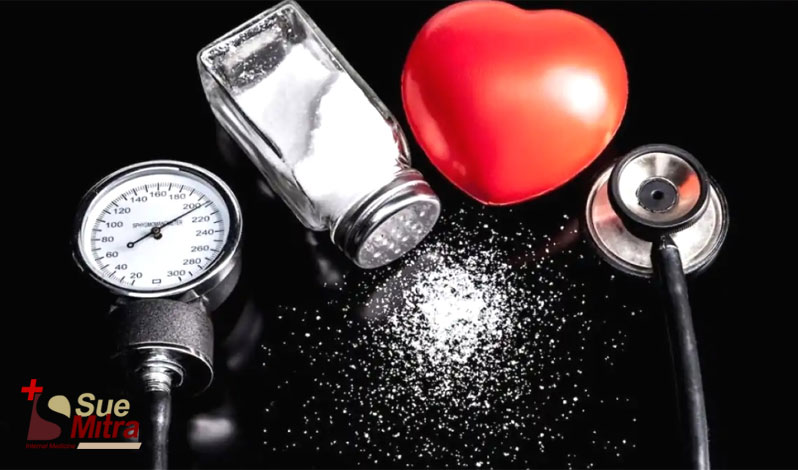
09, Aug 2023
Overview:
It is well established that a high salt (sodium) intake can have a significant impact on blood pressure levels. When we consume salt, our body retains water to maintain a balance in sodium concentration. This increased water volume leads to an increase in blood volume, and subsequently, an increase in blood pressure.
Some Following Tips for Reducing Sodium Intake:
1. Read food labels carefully:
Look for products low in sodium and avoid those high in salt.
2. Cook from scratch:
This allows you to control the amount of salt added to your meals.
3. Use herbs and spices:
Flavour your meals with herbs, spices, and other seasonings instead of salt.
4. Gradually reduce salt in recipes:
Start by reducing the amount of salt called for in recipes by half and gradually decrease it further.
5. Limit processed foods:
Most processed foods are high in sodium, so try to minimize their consumption.
6. Choose fresh foods:
Opt for fresh fruits, vegetables, lean meats, and seafood, which are naturally low in sodium.
7. Rinse canned foods:
If using canned beans or vegetables, rinse them under water to reduce their sodium content.
8. Be cautious with condiments:
Many condiments like ketchup, soy sauce, and salad dressings are high in sodium, so use them sparingly.
9. Choose low-sodium options:
When purchasing canned foods, choose low-sodium versions whenever possible.
10. Cook with alternatives:
Substitute salt with other seasonings like lemon juice, vinegar, or low-sodium herb blends.
11. Be mindful of hidden sodium:
Be aware that certain foods, like vegetable juices and soups, may contain hidden sodium, so check their labels.
12. Limit fast food and takeout:
These types of meals are often high in sodium, so try to cook at home or choose healthier options.
13. Avoid salty snacks:
Opt for low-sodium snacks like fresh fruits, vegetables, or unsalted nuts instead of chips or pretzels.
14. Choose unsalted or lower-salt versions:
When buying items like butter, peanut butter, or popcorn, opt for unsalted or lower-salt options.
15. Drink plenty of water:
Staying hydrated can help flush excess sodium out of your body and lower blood pressure.
Conclusion:
Reducing sodium intake is crucial for maintaining healthy blood pressure levels. The tips provided offer practical ways to decrease sodium consumption and improve overall health. By being mindful of sodium content in food choices and making conscious efforts to cook from scratch and use alternative seasonings, individuals can effectively reduce their salt intake and potentially lower their blood pressure. Making these small changes can have a significant and positive impact on cardiovascular health.
Dr. Sue Mitra and her staff strive to offer their patients the best care, advice and services available in the medical field with the goal to keep patient healthy & happy.

Dr. Sue Mitra is board certified in international medicine. She is seen here with a Cologuard, which is a noninvasive colon cancer screening test. (Photo by: Tim Shortt/Florida Today)